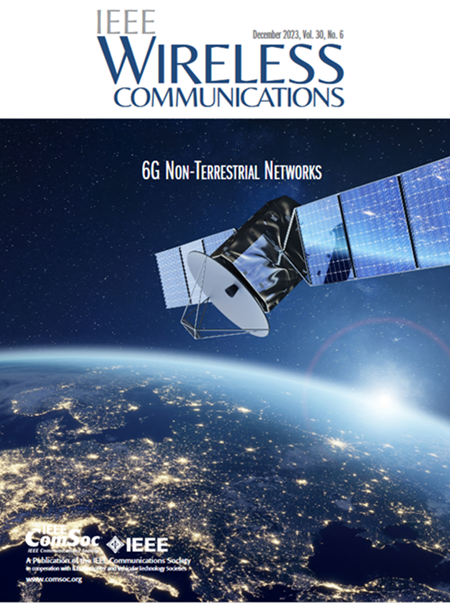Decentralized P2P Federated Learning for Privacy-Preserving and Resilient Mobile Robotic Systems
IF 10.9
1区 计算机科学
Q1 COMPUTER SCIENCE, HARDWARE & ARCHITECTURE
引用次数: 21
Abstract
Swarms of mobile robots are being widely applied for complex tasks in various practical scenarios toward modern smart industry. Federated learning (FL) has been developed as a promising privacy-preserving paradigm to tackle distributed machine learning tasks for mobile robotic systems in 5G and beyond networks. However, unstable wireless network conditions of the complex and harsh working environment may lead to poor communication quality and bring big challenges to traditional centralized global training in FL models. In this article, a Peer-to-Peer (P2P) based Privacy-Perceiving Asynchronous Federated Learning (PPAFL) framework is introduced to realize the decentralized model training for secure and resilient modern mobile robotic systems in 5G and beyond networks. Specifically, a reputation-aware coordination mechanism is designed and addressed to coordinate a group of smart devices dynamically into a virtual cluster, in which the asynchronous model aggregation is conducted in a decentralized P2P manner. A secret sharing based communication mechanism is developed to ensure an encrypted P2P FL process, while a Secure Stochastic Gradient Descent (SSGD) scheme is integrated with an Autoencoder and a Gaussian mechanism is developed to ensure an anonymized local model update, communicating within a few neighboring clients. The case study based experiment and evaluation in three different application scenarios demonstrate that the PPAFL can effectively improve the security and resilience issues compared with the traditional centralized approaches for smart mobile robotic applications in 5G and beyond networks.用于隐私保护和弹性移动机器人系统的去中心化P2P联合学习
成群的移动机器人正被广泛应用于现代智能产业的各种实际场景中的复杂任务。联合学习(FL)已被开发为一种很有前途的隐私保护范式,用于解决5G及其他网络中移动机器人系统的分布式机器学习任务。然而,不稳定的无线网络条件和复杂恶劣的工作环境可能会导致通信质量差,并给FL模型中传统的集中式全局训练带来巨大挑战。本文介绍了一种基于对等(P2P)的隐私感知异步联合学习(PPAFL)框架,用于实现5G及其他网络中安全、有弹性的现代移动机器人系统的去中心化模型训练。具体地,设计并解决了信誉感知协调机制,以将一组智能设备动态地协调到虚拟集群中,其中异步模型聚合以去中心化P2P方式进行。开发了一种基于秘密共享的通信机制来确保加密的P2P FL过程,同时将安全随机梯度下降(SSGD)方案与自动编码器集成,并开发了高斯机制来确保匿名的本地模型更新,在几个相邻客户端内进行通信。基于案例研究的三种不同应用场景的实验和评估表明,与5G及其他网络中智能移动机器人应用的传统集中式方法相比,PPAFL可以有效改善安全性和弹性问题。
本文章由计算机程序翻译,如有差异,请以英文原文为准。
求助全文
约1分钟内获得全文
求助全文
来源期刊

IEEE Wireless Communications
工程技术-电信学
CiteScore
24.20
自引率
1.60%
发文量
183
审稿时长
6-12 weeks
期刊介绍:
IEEE Wireless Communications is tailored for professionals within the communications and networking communities. It addresses technical and policy issues associated with personalized, location-independent communications across various media and protocol layers. Encompassing both wired and wireless communications, the magazine explores the intersection of computing, the mobility of individuals, communicating devices, and personalized services.
Every issue of this interdisciplinary publication presents high-quality articles delving into the revolutionary technological advances in personal, location-independent communications, and computing. IEEE Wireless Communications provides an insightful platform for individuals engaged in these dynamic fields, offering in-depth coverage of significant developments in the realm of communication technology.
 求助内容:
求助内容: 应助结果提醒方式:
应助结果提醒方式:


